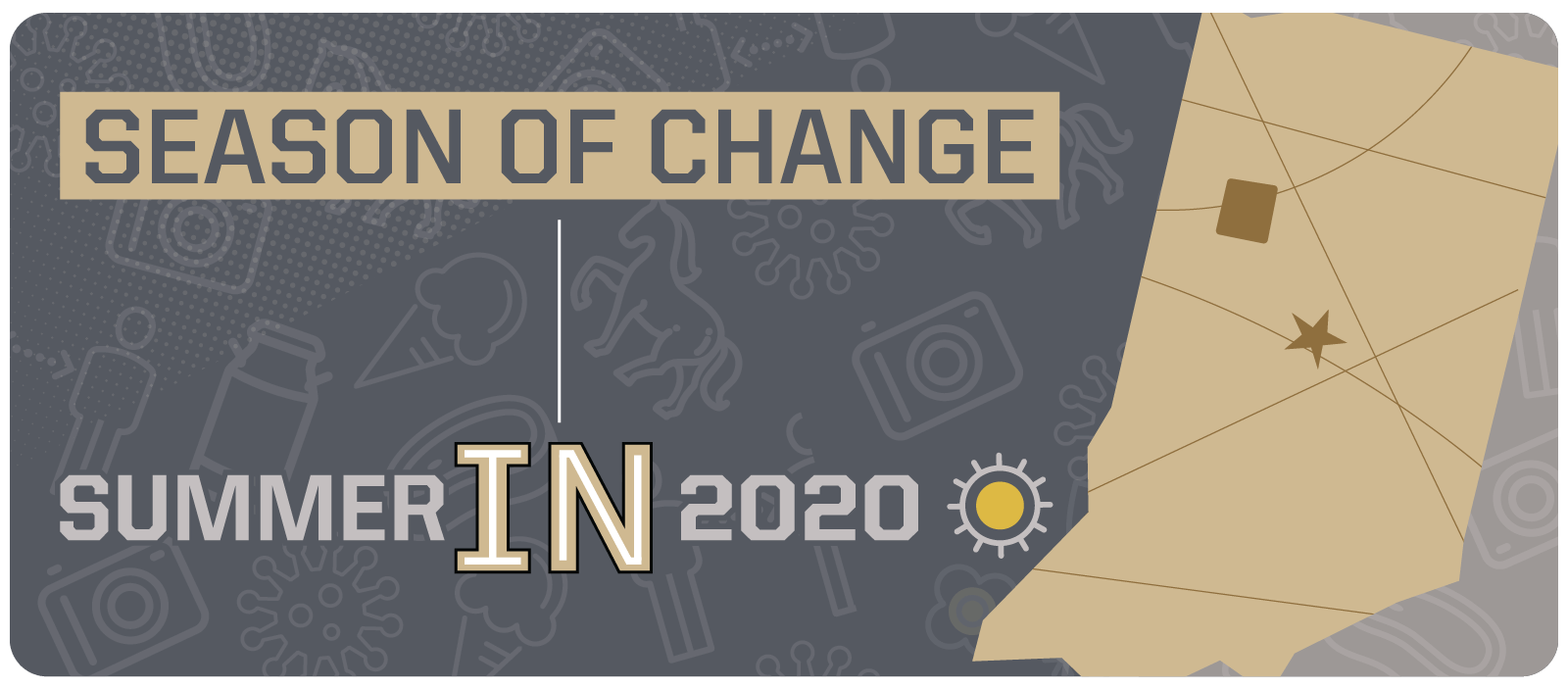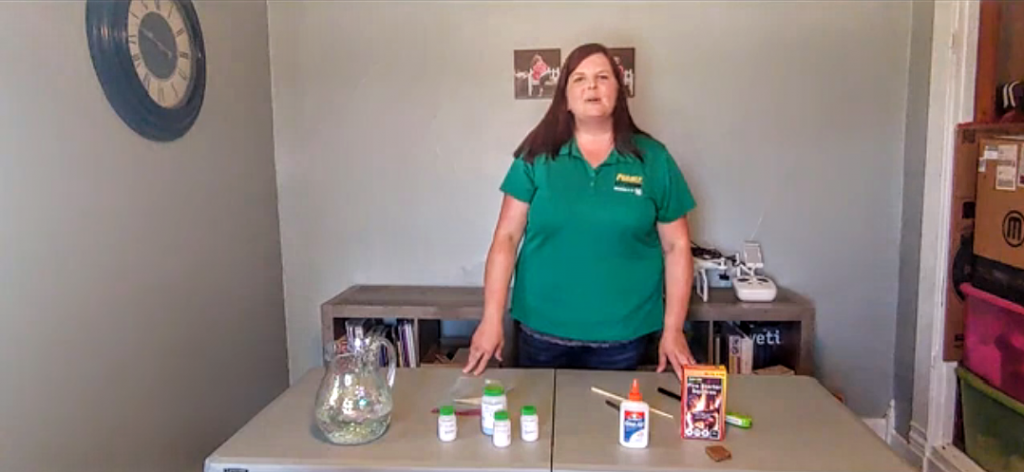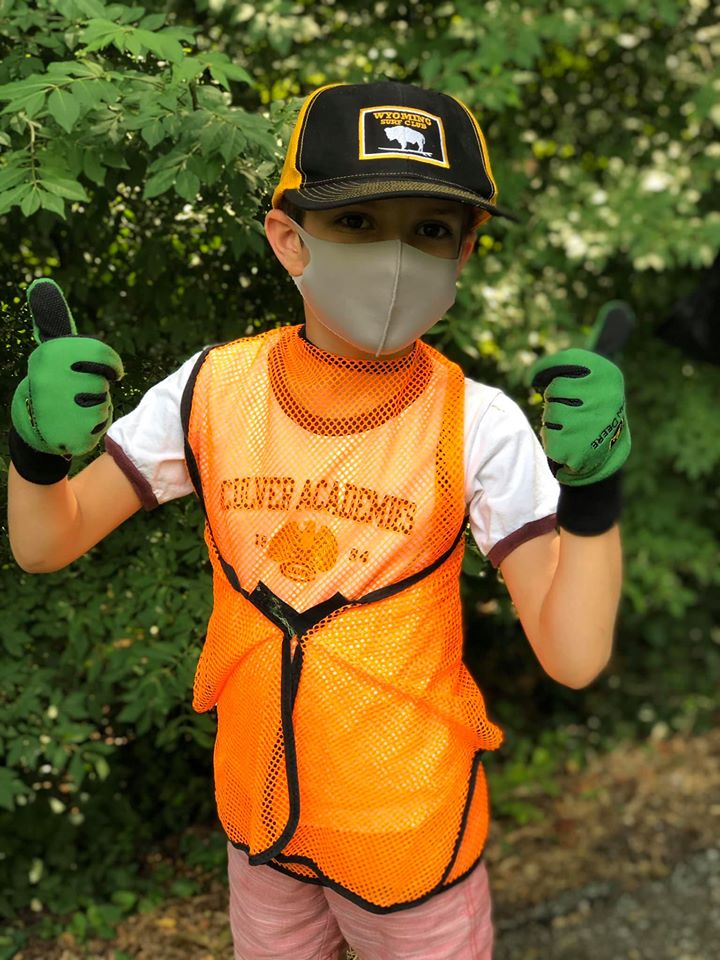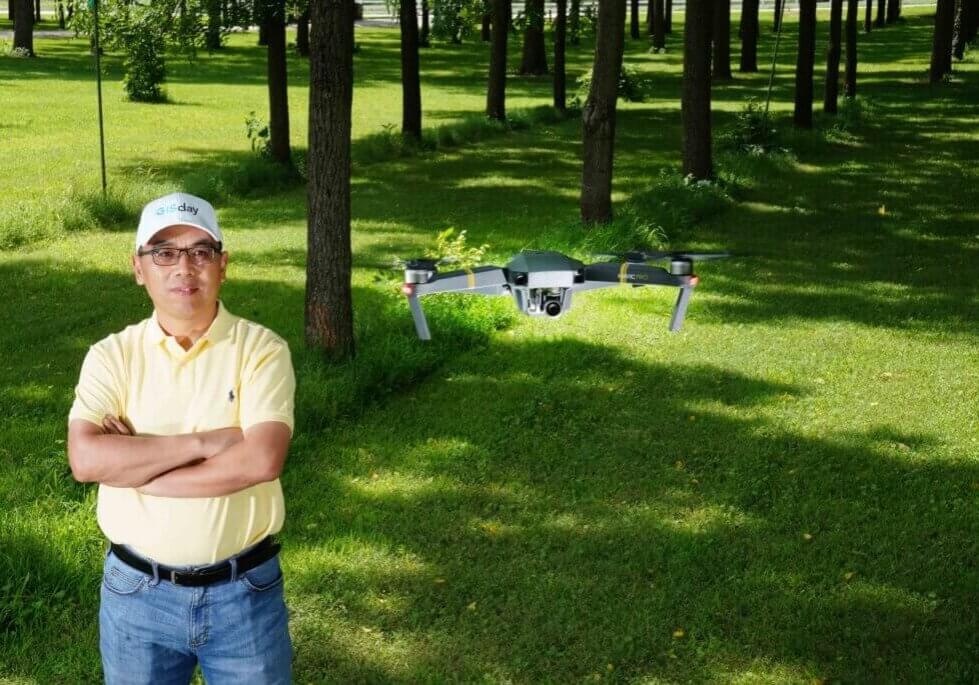
COVID-19 guarantees that the Summer of 2020 will be like none we have experienced. We will be exploring what that means in Indiana by telling the stories of Purdue Agriculture’s and Purdue Extension’s interactions with communities throughout the state. We invite you to follow our series on this Season of Change.
COVID-19 presented a diverse set of challenges for families across the country this summer. For K-12 students, used to summer camp, activities and other opportunities, the season proved especially challenging.
While most in-person programming for Indiana 4-H was canceled, the organization transitioned many of its popular summer programs into online activities. Through this challenge 4-H educators and staff gained insights into how the organization could adapt, how 4-H could use this time to retool its programming and reassess the needs of its members.
“This pandemic has challenged us to think about ‘what’s next.’ Several times over the past three to four months, we have encouraged our 4-H educators to remember the next normal is not what January 2020 looked like,” Casey Mull, Extension’s assistant director and program leader of 4-H youth development, said. “If our programming reverts to what January looked like, we will not have learned anything from the experience.”
“I thought it was striking how folks who had planned to do this in person were able to pivot so quickly to the online space,”
Jenny Clark, 4-H youth development Extension specialist, said when 4-H leadership saw the writing on the wall regarding COVID-19 back in March, they immediately began developing a plan for how to take Indiana 4-H’s programming into the virtual sphere. The effort has met with a wide range of engagement from 4-H’ers and other young people across the state.
4-H members and their families received an impressive menu of activities to choose from, including an online hackathon, Zoom sessions discussing civic engagement, a virtual cake decorating workshop and many more options. Clark said educators immediately embraced the challenge of going online, determined to work with and share their knowledge with students, despite obvious obstacles.
Even 4-H Academy, a program traditionally held on campus for high school students to explore educational and career opportunities, was offered online.
“I thought it was striking how folks who had planned to do this in person were able to pivot so quickly to the online space,” Clark continued. “Many created custom videos that toured students through facilities, introduced them to their programs and answered questions. Most sessions were recorded in advance, and those that were live were recorded for later use”
Another stunning success was the cake decorating workshop, which Clark said had 400 participants (Zoom’s capacity) from all around the country.
4-H educators also continued to push out curriculum and opportunities within their own counties at a rapid rate, offering students tips about mental health and healthy eating during the pandemic, but also providing engaging material that can be a distraction from current events.
“The ingenuity of our 4-H educators has also led to engaging programming away from screens, such as camps within a box or individualized programming that’s available for pickup at county Extension offices,” Mull said.
And while they hope students are learning, Tony Carrell, 4-H youth development specialist, said this period proved highly educational to 4-H staff. It alerted them to the high level of interest and participation that can be obtained through virtual programming, but it also revealed some its pitfalls.
“Participation in our virtual opportunities didn’t require transportation and we were able to offer lots of programs for free or a greatly reduced cost. Programs requiring supplies were either adapted to utilize ordinary household items or provided in supply boxes,” Carrell added. “While all that is positive, the downside is that those without reliable internet access or an electronic device could not participate. The pandemic reinforced the fact that much of our state lacks internet service or signal strength.”
Mull, Clark and Carrell all said they see a newly structured 4-H that offers some content online, but that is only possible if access is equitable across the state, an issue many researchers and Extension specialists at Purdue are working to address.
Mull said the response from families to online programming has been overwhelmingly positive. The in-person format sometimes doesn’t always generate opportunities for feedback, but with programming online they received a flood of suggestions, questions and accolades for the offerings. The national 4-H organization has even picked up several of Indiana 4-H’s programs, elevating them to a wider audience. 4-H also partners with Wide Open School, an online educational platform with an audience of millions, and content from Indiana 4-H was featured there, including an at-home photosynthesis activity.
The elevation of content to a national and even international level validates the work and tells educators and specialists they’re on the right track and to keep going, Clark said.
“In our book, reaching such a large audience qualifies as a major success,” Clark added. “We’re looking forward to a time when in-person programming can resume but until then we will be meeting families where they are, wherever that is.”
Friday Photo: 05/13/2022
The assignment for Purdue Natural Resources and Environmental Sciences professor Laura Bowling’s last field trip of the semester, was to collect and count invertebrates in a section of Burnett’s Creek, just north of campus. Note the reaction of students (left to right) Avery Fess, Ireland Beebe and Eva Curtis when the inch-long cranefly larvae show a little more mobility than expected.
Read Full Story >>>





